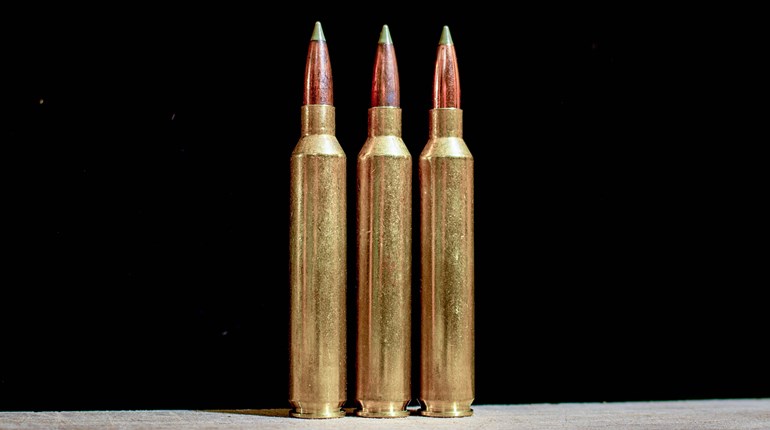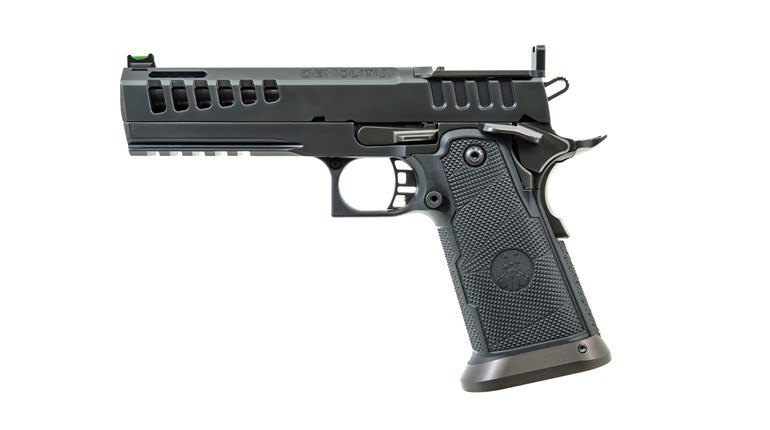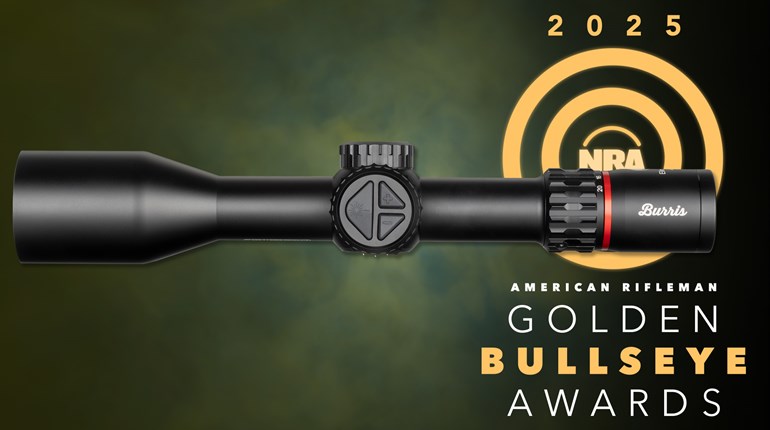
The Weaver brand once dominated the American riflescope market. Until the 1980s, Weaver scopes were nearly as prevalent as .30-'06 Sprg.-chambered rifles. The rise of competing brands, both domestic and imported, seemed to kill off the Weaver name by the turn of the millennium, with the company's scopes becoming harder to find. In 2008, however, ATK reacquired the optics side of the brand from Meade—determined to resurrect Weaver riflescopes and binoculars, and restore the brand to its prior prominence.
The company's latest riflescope is the 4-20x50 mm Tactical, with all the features you'd expect from a scope bearing that designation. Weaver's product development team clearly did its homework. This scope has a mil-dot reticle in the first focal plane, which allows shooters to use the mil-dots for their true purpose—ranging. It also boasts lockable, 1⁄4-MOA windage and elevation adjustments, and removable turrets for return-to-zero capability. A side-focus parallax knob that corrects from 25 yards to infinity rounds out the turret housing.
Testing the adjustments on a .308 Win. rifle by shooting the standard "box" test turned into a mere formality. Elevation and windage moved the proper distances in the correct number of positive clicks. The return-to-zero feature made it easy to get back to the center of the target after the box test.
To test the fully multicoated optics, I hung a target with fine lines, thick lines, and red and green circles in the woods behind my house. Just before sunset, I set up in the backyard and proceeded to view the target through the scope. At around 32 minutes after sunset the thin lines were the first to fade. Resolution—or the scope's ability to show target detail, such as intersections of the lines—dropped below 50 percent roughly 6 minutes later. The green and red circles diminished to gray scale through the scope about 44 minutes after sunset, but remained visible until the target itself disappeared 1 hour and 4 minutes after the light faded.
Durability was never really in question. The Japanese-manufactured Tactical line is big, heavy and tough. I put the scope in the freezer for 30 minutes, then took it into a room with a space heater cranked up. After 15 minutes, I placed the scope in a bucket of cool water. There were no leaks or internal fogging. I then reversed the order, but the results remained the same.
The only negative points on the 4-20x50 mm Tactical are its somewhat inconsistent eye relief and the use of plastic turrets. One of my pet peeves with riflescopes is when eye relief changes dramatically with changes in magnification. This Weaver displayed that problem and also left little margin for error laterally. The plastic turrets aren't a big deal, and they certainly functioned with aplomb while not showing the faintest sign of damage, but on a $1,000 scope, one generally expects more.
Nitpicking aside, this is an excellent optic. While it lacks some of the cosmetic panache of more expensive tactical scopes, the Weaver 4-20x50 mm Tactical is more than capable of handling the toughest tasks under the worst conditions. It has excellent glass and can withstand recoil up to and including .50 BMG. After almost a generation in the shadows, Weaver Optics is back in a big way.


































